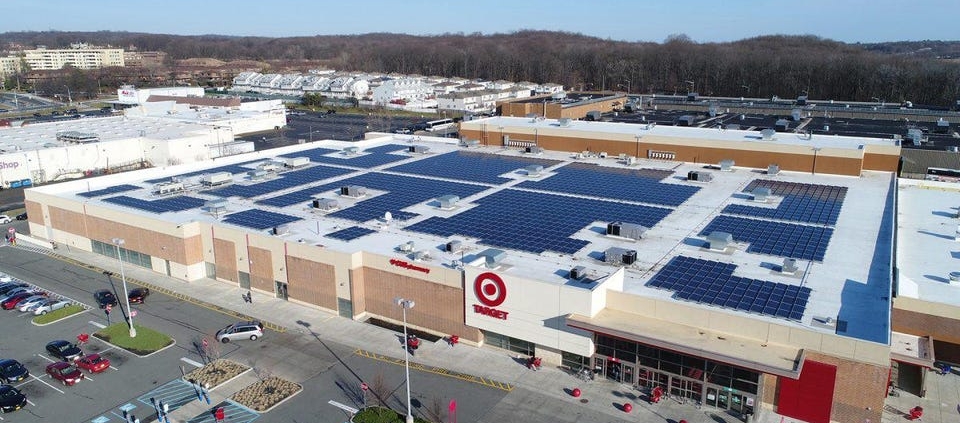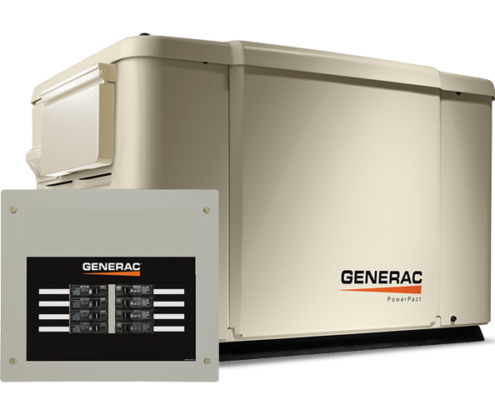Commercial Solar Panels
How Commercial Solar Panels Differ From Residential
You may find that some solar panels are described as residential, while others are described as commercial. However, any solar panel type will work in any building, since all have the same operating principle.
Size and Capacity
- The concept of “residential solar panels” normally refers to 60-cell modules, which have typical dimensions of 65” x 39”.
- On the other hand, 72-cell modules are normally called “commercial”, and their typical dimensions are 78” x 39”, which makes them 20% taller.
Since 72-cell solar panels are larger, they allow 20% more capacity to be installed with the same amount of racking. Both panel sizes have the same width, but 72-cell panels allow racking to be spaced out more. 60-cell panels are commonly used in residential settings, since they are easier to handle and the areas involved are smaller. 72-cell panels are generally the best option for the scale of commercial projects, saving on racking and making the installation faster.
Return on Investment
Each project is unique, but commercial solar systems tend to have a higher ROI and a quicker payback than residential systems. Installation costs per kW are lower thanks to economies of scale, and a larger percentage of the electricity output is consumed before exporting to the grid.
Contact us to discuss your commercial solar project.
2022 US Tax Credit for Commercial Solar Panels
Commercial solar panels are eligible for the Investment Tax Credit (ITC), just like residential installations. A 26% tax credit applies until the end of 2022, and it decreases to 22% for projects that start in 2023. The benefit will no longer be available for the residential sector from 2024 onward, but businesses will still have access to a 10% federal tax credit. Originally, the solar ITC would end two years earlier in 2022, but it was extended by Congress on Monday December 21, 2020.
The federal tax credit can be combined with local incentives for solar power. For example, if a company gets a state tax incentive and a utility company rebate for solar panels, these can be combined with the ITC.
How the Tax Credit Works with Commercial Solar Projects
The solar tax credit applies based on the date when installation starts. All solar installations that start in 2021 or 2022 will get a 26% credit, but this becomes 22% on January 1, 2023. Projects must also be completed within four years after starting construction or before the start of 2026, whichever happens first. However, solar arrays are installed quickly, and four years is plenty of time even for megawatt-scale systems.
Battery Systems Are Also Eligible for Tax Write-Offs
Commercial solar arrays with battery systems are also eligible for the ITC, but the battery portion only gets the credit if at least 75% of its charge comes from solar panels. Also, the tax credit for battery systems is proportional to their solar charging percentage:
- Assume a commercial battery system installed in 2021 has a cost of $400,000.
- The maximum tax credit would apply if all the charge comes from solar panels. The 26% credit applies for 2021, equivalent to $104,000 in this example.
- However, if these batteries get 80% of their charge from solar panels and 20% from the grid, the tax credit drops to $83,200.
- The tax credit for the solar array itself is unaffected by the battery portion of the project.
In the commercial and industrial sectors, battery systems can help reduce peaks in demand. Many businesses are subject to a peak demand rates, in addition to the normal charge for energy consumption. A battery system can be programmed to supply power internally when demand is high, reducing the peak demand measured by the power meter.
Electricity Buyback Programs for Commercial Solar Systems
Home solar power systems produce most of their electricity around noon. However, occupants are often away at this time of the day, at work or attending academic institutions. As a result, a lot of the electricity is not consumed at home, but exported to the power grid. This reduces the savings achieved: each kilowatt-hour consumed saves the full retail price, but most energy companies only give partial credit for exported electricity.
Commercial solar power systems are affected less by this issue, since companies are normally active around noon. This means they consume most of the electricity produced by solar panels. However, on the weekends, holidays or slow traffic days, excess electricity can be sold back to the grid for an additional bill credit.
Learn more about solar net metering and payback programs for industrial sized solar systems.
How Installing Solar Panels Can Improve Corporate Image
In addition to the financial benefits of commercial solar power, it improves brand image. A large solar array on a commercial rooftop stands out, and it sends the message that the company is going green. The use of clean energy can help companies attract clients and business partners who value sustainability and environmental protection.
According to a study by Nature Energy, solar power systems have a carbon footprint of less than 21 g of CO2 per kilowatt-hour. This applies for their entire life cycle: materials extraction, manufacturing, shipping, construction and decommissioning. For comparison, power generation with natural gas normally produces over 400 g CO2 / kWh, while coal-fired generation releases over 1,000 g CO2 / kWh. When commercial and industrial buildings deploy solar panels, their consumption of grid electricity and their carbon footprint are reduced greatly.
Solar System Quote
Complementary Price Estimate for Solar Panel Systems











